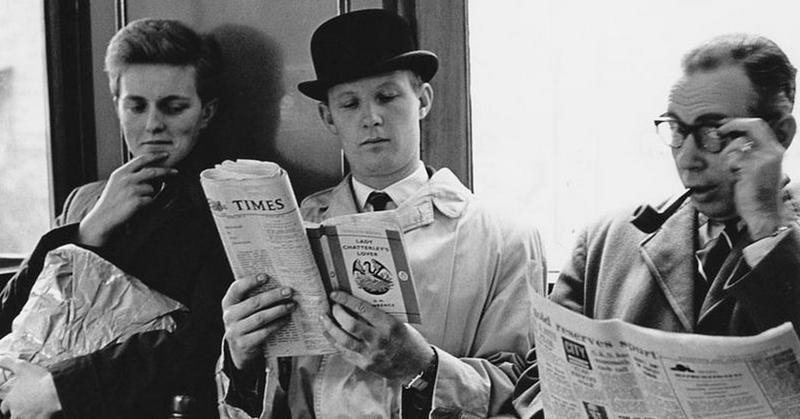The Obscenity Trial Of "Lady Chatterley's Lover"
By | June 10, 2022

English author D.H. Lawrence was known for pushing the envelope, but his final novel, Lady Chatterley's Lover, caused such an uproar in the U.K. that it wasn't published in its entirety for 30 years after its official release. Although far from shocking by today's standards, the novel was considered obscene, and Lawrence was dismissed as a pornographer who wasted his talent.
Lady Chatterley's Lover
The young and pretty Constance Reid, married to the handsome upper-class Sir Clifford Chatterley, spends much of the book wrestling with her carnal desires after a battlefield injury leaves her husband paralyzed from the waist down and unable to perform his marital duties. When she begins an affair with the estate gamekeeper, she finds that love can exist entirely outside the mind. Although those parts of the book received the most attention, the novel is an important commentary on social class and the repression of women's desires. Truth be told, the spicier portions of the text are no more so than those contained in today's average bodice-ripper, but Lawrence did take liberties with certain four-letter words that were forbidden from print.

The Obscene Publications Act
Lady Chatterley's Lover was first published privately in 1928 in Italy and then in France the next year, but U.K. obscenity laws permitted Penguin Books to publish only a heavily censored edition in the country in 1932. The missing text was crucial to understanding Lawrence's vision, so in 1960, the year after the country's Obscene Publications Act was passed, Penguin published the full story to test the new law. The publisher reportedly sent a copy of the book straight to the director of public prosecutions, who responded by filing a lawsuit to block the publication.

The Obscenity Trial Of Lady Chatterley's Lover
During the trial's opening arguments, which commenced November 2, the prosecution presented a tally of the "obscene" words used in Lady Chatterley's Lover, noting that there were more than 80 such instances. They called no witnesses to testify, while the defense summoned 35 key figures of literature, academia, and religion to testify to the historical and literary value of the book. Chief prosecutor Mervyn Griffith-Jones was mocked for asking the jury if Lady Chattley's Lover was "the kind of book you want your wife or servants to read," illustrating how out of touch the lawmakers were with the changing times.
After a six-day trial, the jury returned a verdict in favor of Penguin, who benefited handsomely from the publicity, selling more than three million copies in the years after the verdict. London's largest bookstore, W&G Foyle, claimed to have sold its first shipment of 300 copies in just 15 minutes and immediately ordered 3,000 more. The second edition, published by Penguin the next year, contained a dedication to the 12 jurors who "made D. H. Lawrence's last novel available for the first time to the public in the United Kingdom."

